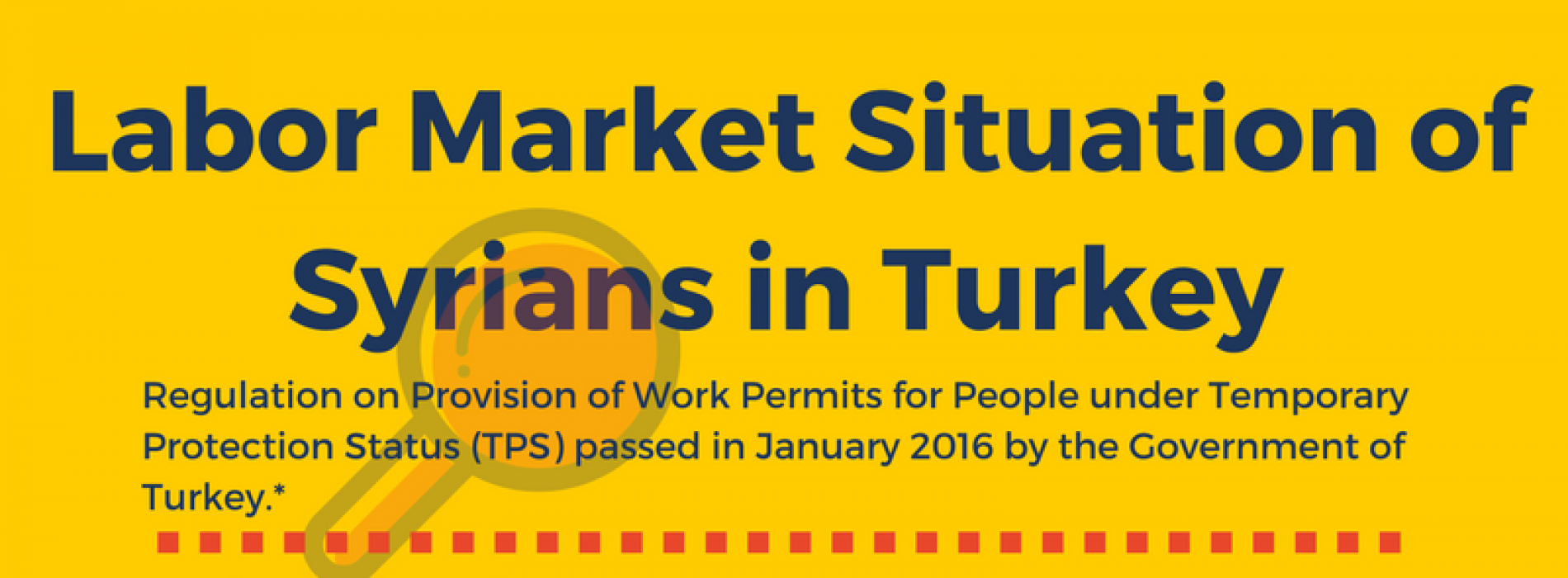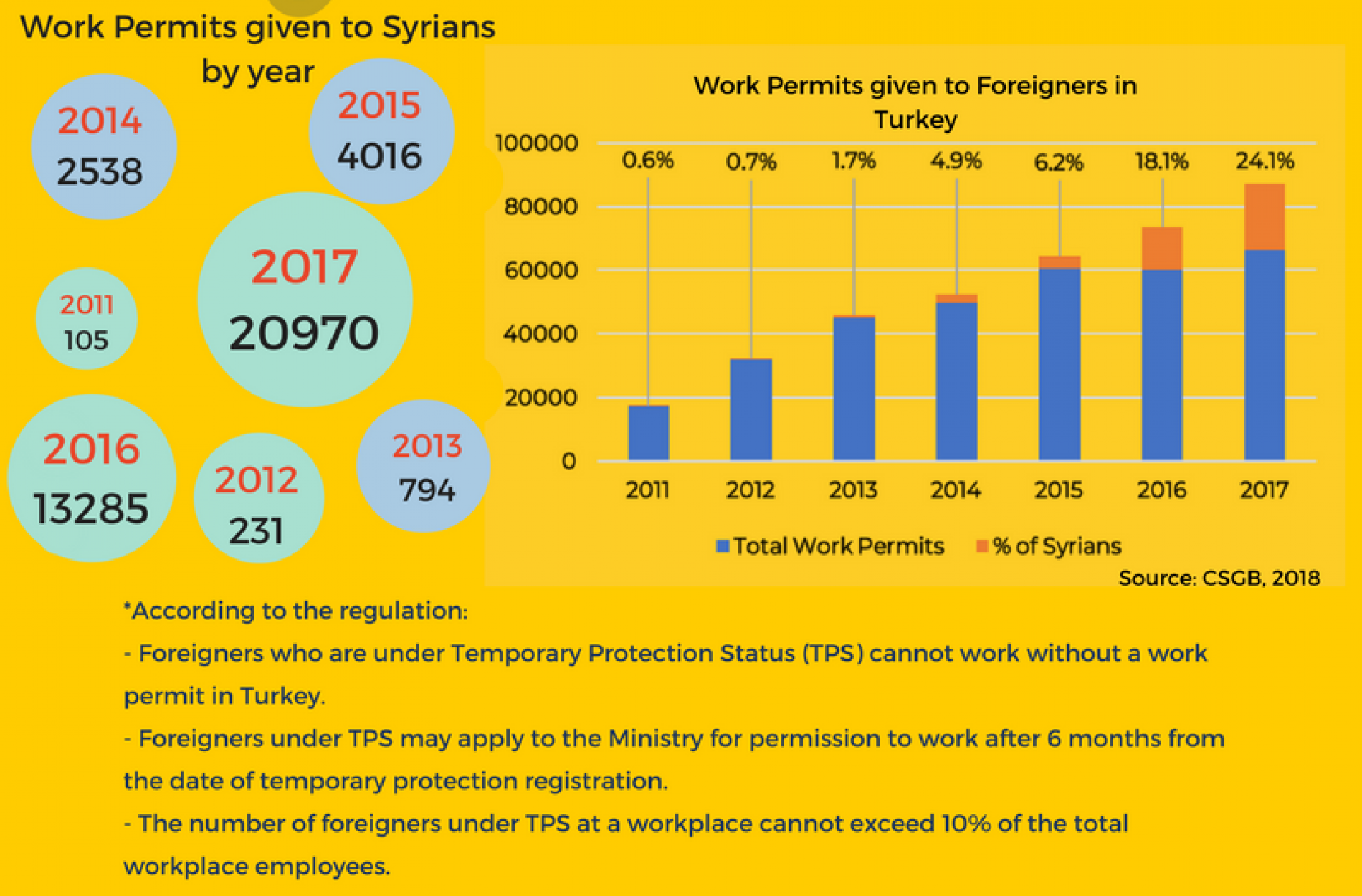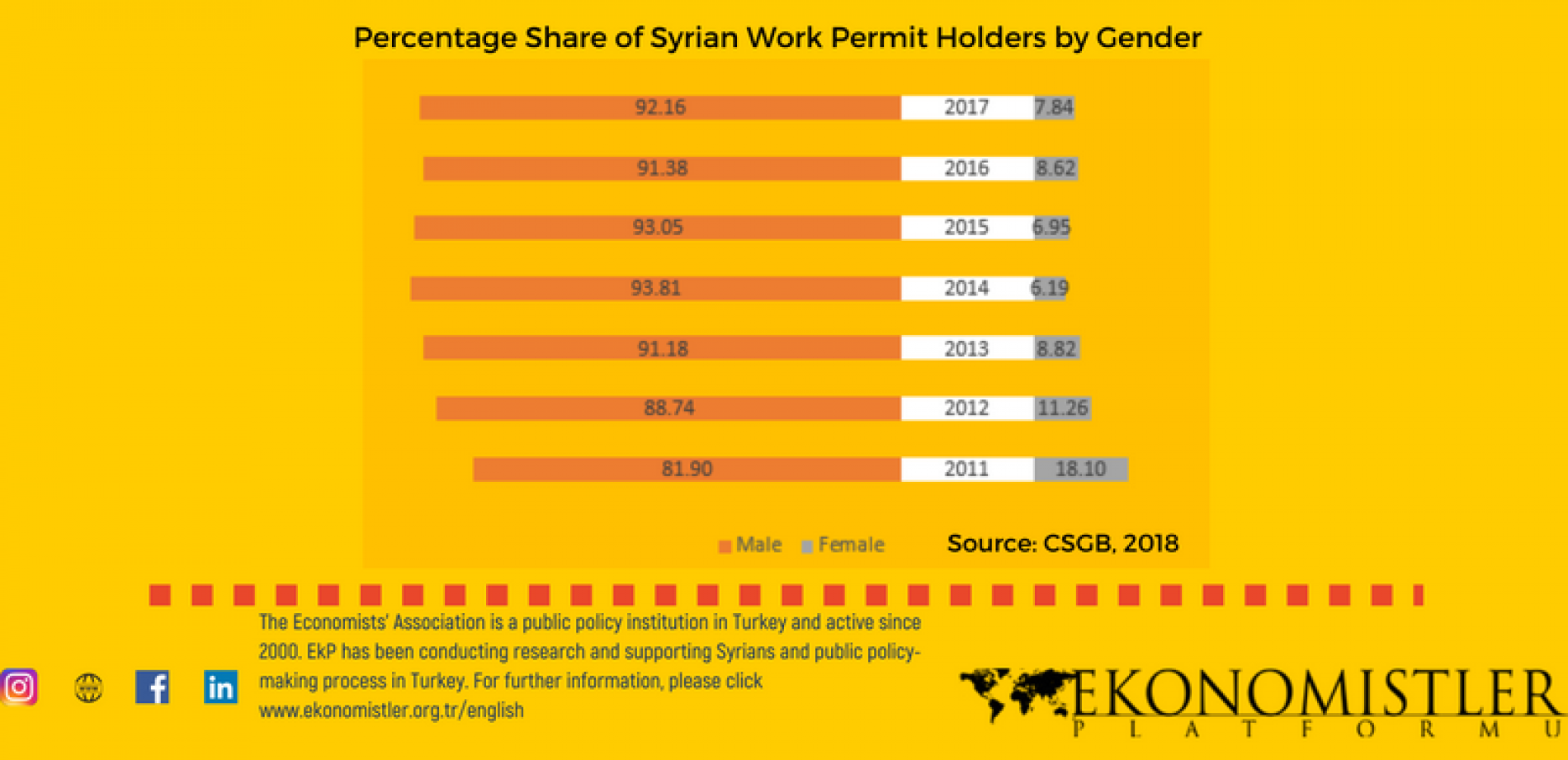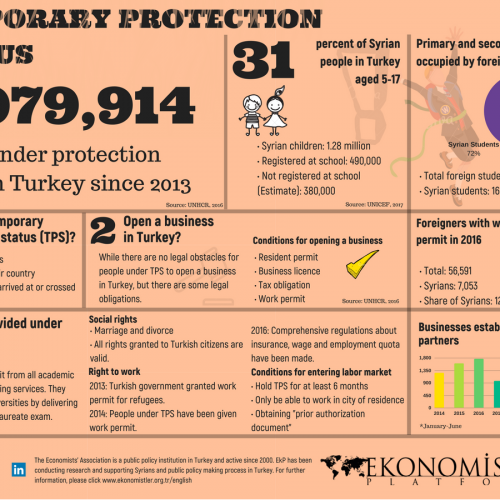Labor Market Situation of Syrians in Turkey
Economic integration is a vital part of overall integration into a new society. Policies that assist migrants to become self-sufficient should be in place to speed up their integration process within their host countries. Many countries have failed to assist and integrate forced migrants into the labor market making it difficult for refugees to settle and also make them vulnerable to exploitation. Turkey, being at the forefront of the Syrian refugee crisis, has been slow to devise policies that would help Syrians to integrate into the labor market. The first five years of the crisis (2011-2015), there was no framework in place to allow Syrians under TPS to get a work permit. Through these years, an extremely low number of Syrians were able to get a work permit which included an even smaller number of females. The number of work permits granted to Syrians since the regulation passed in January 2016 is significantly higher than in the previous years. However, Syrians who have obtained the work permits are part of a minority whereas thousands of Syrians continue to work in the informal economy.
Many others have also established their own businesses, the number at the end of 2017 stood at over 6400 businesses established with Syrian partners since 2011. The regulation on work permits has facilitated Syrians in entering the labor market, however, for a majority of the Syrians entering the formal labor market has not been possible. While many Syrians have been employed in the informal economy, it is important to realize that in 2016, 33.49% of Turkish workforce was employed as informal employment. The informal employment among locals is an indicator as to why so many Syrians may also be employed in the informal economy. Yet still, the numbers are very high for informal employment and very low for formal employment, hence, better policies should be made to integrate Syrians into the labor market. Furthermore, initiatives should be taken that focus on empowering and developing the skills of Syrians to better align them with jobs in Turkey.
LM Situation of Syrians in TurkeyAbout author
You might also like
Brief Overview of the Syrians in Turkey
The Syrian War Crisis began in 2011 displacing millions of civilians inside Syria and forcing millions more to flee the war torn country. Most of the Syrian refugees fled to
Completed Projects
Applied Projects: Local Development Model Project (2005) funded by US Chamber of Commerce Business Organizations’ Capacity Development Project (2007) funded by US Chamber of Commerce Regional Development Agencies in Turkey
Current Projects
Applied Projects: Mobile Technology, Mobile Employment The project is funded by EU and Ministry of Labour of the Republic of Turkey. Project’s primary objective is to create an incubator for




